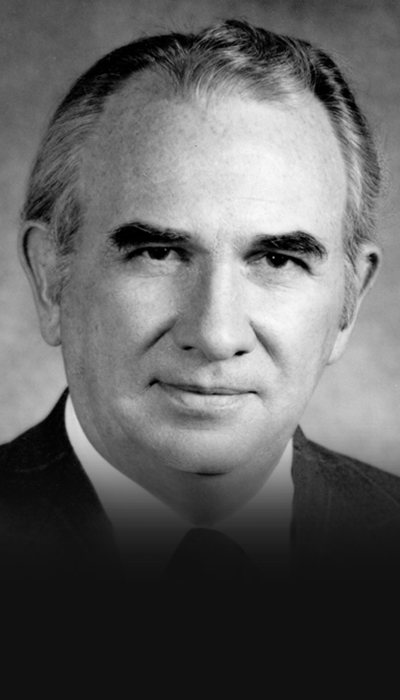
Harry Maurice Philo
2018 Inductee
(deceased)
Harry Maurice Philo was born in Glens Falls, N.Y., in 1924, and attended Union College. During World War II he served in the U.S. Army, where he gained his first trial experience in courts martial. Though he was an enlisted man with no legal training, he represented numerous soldiers who otherwise would have faced trial without benefit of unbiased counsel.
He earned his law degree at Detroit College of Law in 1959 while working as a UAW member on the assembly line at Ford Motor Co.’s Rouge Plant in Dearborn, Mich. He sometimes said that the only time in his life when he ever felt “stupid” was while working on the assembly line at Ford’s—because the other workers understood better than he, a law student, what they had to do to get the job done while protecting themselves from injury and mistreatment.
Wherever he went and whatever he did, all his life Harry was a courageous leader in the struggle for equal justice. His many efforts included:
- Supporting numerous civil rights causes (and enduring Hoover-era FBI harassment as a result);
- Running for UAW office on the first racially diverse election ballot in the union’s history;
- Serving as part of the cordon of volunteers guarding African-American singer Paul Robeson at a concert in Peekskill, NY, in September, 1949, at which numerous concert-goers and security volunteers were clubbed and stoned;
- Asking workers he met in restaurants and casinos if they were organized and if they had healthcare, and asking cab drivers how they were making out and what they thought about the size of the U.S. defense budget;
- Exposing the dangerous risk-shifting schemes inherent in construction contracts that left workers employed by sub-contractors at the mercy of unguarded scaffolds, roofs, and pits;
- Suing Wayne County, Mich., to relieve conditions in the overcrowded and racially explosive Detroit jail; and
- Organizing 113 women to file suit to void Michigan’s repressive anti-abortion laws, under which wealthy women could travel to New York for medical care but poor women were deprived of adequate care during pregnancy.
His service to the legal profession, especially the trial bar, was unparalleled. He was:
- A leader of the Michigan Trial Lawyers Association, serving two terms as its President (1972-3 and 1973-4);
- An early member of the National Association of Claimants’ Compensation Attorneys (AAJ’s predecessor), and a member of “Rood’s Rangers”—a group of several dozen trial lawyers who traveled the country giving free “How To” seminars to younger lawyers;
- An ATLA leader for 30 years, serving as ATLA president in 1980-81, and receiving its Leonard M. Ring Champion of Justice Award in 2000;
- Lead counsel in landmark cases, including Shavers v. Kelley, 267 N.W.2d 72 (Mich. 1978), which successfully challenged Michigan’s “no-fault” legislation, and two important industrial safety cases: McDonough v. GM, 201 N.W.2d 609 (Mich. 1972), and Funk v. General Motors Corp., 220 N.W.2d 641 (Mich. 1974).
- Author or editor of numerous articles, books, and audio recordings on trial practice, including the Trial Handbook for Michigan Lawyers and Lawyers Desk Reference—an encyclopedic reference for investigating and trying tort cases, published by Thomson Reuters (formerly West Publishing Co.), and used by trial lawyers on the side of people across the U.S. today.
Harry was never too busy to advise struggling trial lawyers who were trying to learn how to represent people. As ATLA President-Elect and as President, he traveled to every state organization and to every ATLA seminar to speak and meet with the boards and learn their needs. Particularly popular was a three-hour mini-seminar on case preparation that he taught with his partners Linda Atkinson and the late Richard Steinberg, bringing along archive boxes full of sample pleadings and large artists’ portfolios crammed with examples of demonstrative evidence. Harry frequently told young lawyers that the key to any personal injury case is “determining how due care on the part of some collectible defendant would have prevented the injury to your client.”
During her term as ATLA President in 1992-93, Roxanne Conlin inaugurated the Harry Philo Award for leadership in protecting the rights of individuals through the civil-justice system. Bestowing the first-ever Philo award on Harry himself, she called him, “Our conscience” because he reminded ATLA lawyers constantly that, “We are Lawyers on the Side of People. Never let us forget that the Law is never settled until it is settled right, it is never right until it is just, and it is never just until it serves society to the fullest.”


